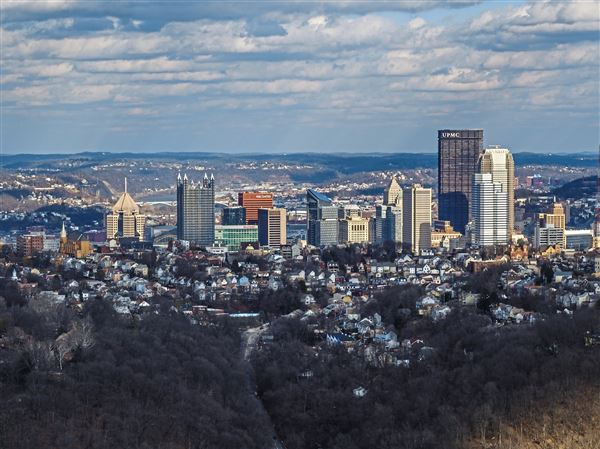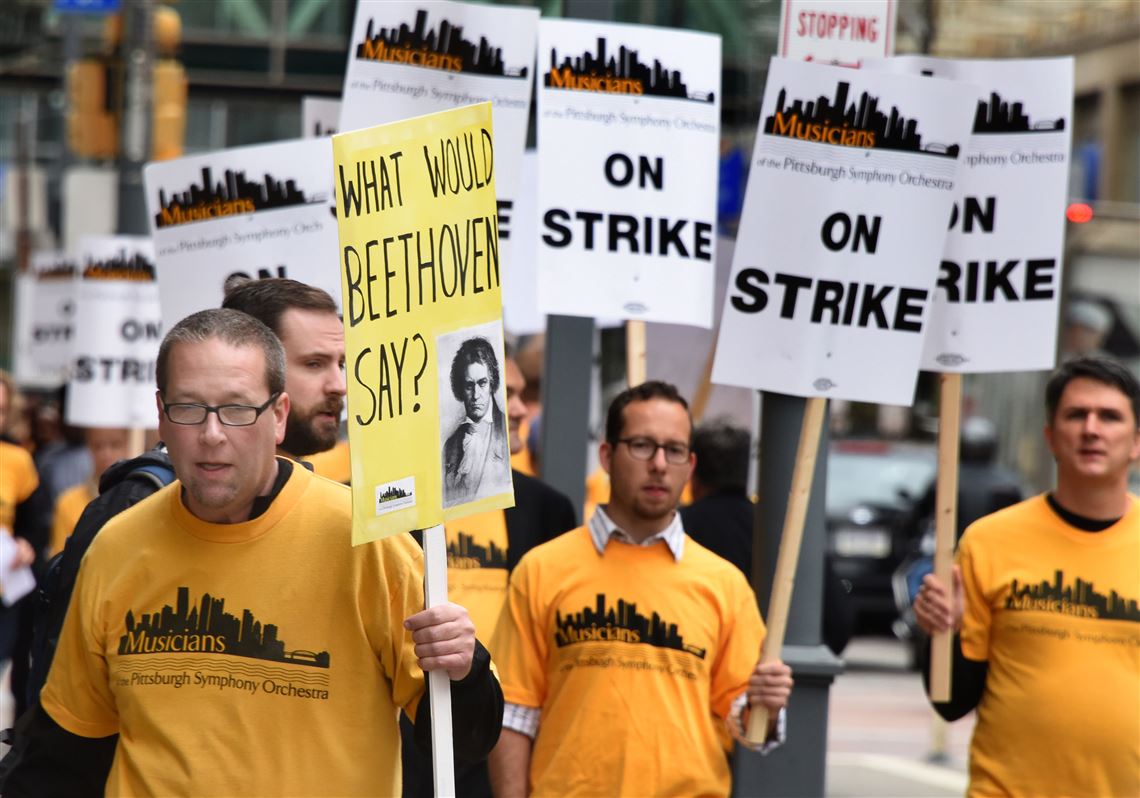Musicians and management of the Pittsburgh Symphony Orchestra could be close to reaching a new contract that would end the nearly two-month work stoppage at Heinz Hall.
The sides could agree to a deal as soon as this week, resuscitating the symphony’s dormant season, people with ties to both sides in the labor dispute told the Pittsburgh Post-Gazette this week.
A new pact would get the musicians back to work and end a bruising and polarizing labor dispute that often has played out in the court of public opinion.
The musicians, who had been picketing every day since they went on strike Sept. 30, suspended their picket line on Saturday morning after the two sides met on Friday.
Details about the negotiations were unclear, but if all sides agree to a new pact, the PSO could salvage the popular and lucrative holiday pops concerts that are scheduled to start Dec. 9.
The organization previously canceled all orchestra concerts through Dec. 5. The PSO’s annual fundraising gala on Sept. 17 was the last symphony performance at Heinz Hall. The musicians have offered several of their own concerts in various venues during the dispute.
The two sides first met in February but did not start negotiating until June. Although they brought in federal mediators in September, negotiations broke down after management made what it called its last, best and final offer to the musicians, who rejected the proposal and went on strike.
Under that last offer, all musicians would have taken a 15 percent pay cut in the first year and immediately transitioned to a defined contribution retirement plan. Currently, some musicians have pensions and recent hires have a defined benefit plan.
The proposed three-year contract also included slight increases in salary in the second and third years and would have reduced the size of the 99-piece orchestra by at least three musicians.
The two sides did not return to the bargaining table until late October. The negotiating teams again were working with federal mediators, but they were using the same information about the PSO’s financial health. In October the musicians and management jointly commissioned and paid for a report from an independent financial analyst.
Since the strike began, Pittsburgh Mayor Bill Peduto and Allegheny County Executive Rich Fitzgerald have met with both sides.
Those outside influences — the mediators, financial analyst and public officials — can prompt negotiating sides to reach an agreement, Chicago-based arts consultant Drew McManus said.
“Most contentious negotiations have an easier time settling when there’s an outside force that can bring both sides out of their entrenched positions,” Mr. McManus said.
In some cases, those individuals, like the independent financial analyst, can provide facts and figures that both sides agree on, Mr. McManus said. In other instances, political figures can provide carrots and sticks, such as encouraging a benefactor to give a large donation in the case of a settlement, although that approach has been less common since the recession, he said.
Neither side has made a public statement on the negotiations since getting back to the bargaining table in late October. Representatives for the management and musicians both declined to comment about a possible breakthrough.
Elizabeth Bloom: ebloom@post-gazette.com, 412-263-1750 and Twitter: @BloomPG.
First Published: November 22, 2016, 6:04 p.m.
Updated: November 23, 2016, 2:11 a.m.

















